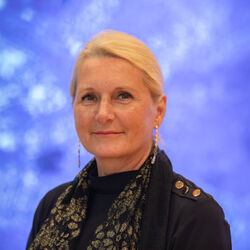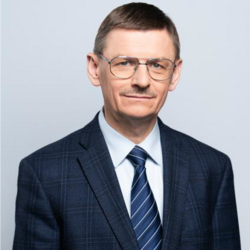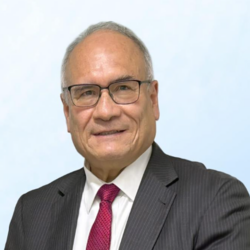Plenary 5: Exploring Together - Opportunities, Challenges, and the Role of ISECG in Engaging Emerging Space Agencies
Day: Thursday 17 June 2021
Time: 14:05-15:00 MSK
As the new era of space exploration unfolds, an increasing number of space agencies worldwide are becoming engaged in space exploration. This is evidenced by the dramatic expansion in the membership of the International Space Exploration Coordination Group (ISECG), an inter-agency coordination forum created in 2007 to advance individual and collective efforts in space exploration. In January 2018, ISECG produced the third edition of the Global Exploration Roadmap (GER), which captured a shared vision for human and robotic space exploration of 15 member agencies. Since then, ISECG membership has steadily increased, and many space agencies have renewed their focus on the Moon. These circumstances created an opportunity for ISECG to release, in August 2020, the Lunar Surface Exploration Scenario Update as a supplement to GER. This document, produced by 24 member agencies, laid out the latest mission scenario and architecture for human and robotic lunar surface missions, integrating renewed and emerging national plans and commercial capabilities among ISECG participating countries. As of today, ISECG has 26 member agencies.
The growing endeavors and participation by emerging agencies in space exploration mean that more countries, including their industry and citizens, would contribute to and benefit from space exploration. The increased opportunities arising from the enlarged programs of established agencies, availability of commercial transportation services and other capabilities, sharing of scientific data, and lower entry-to-barrier technologies such as cubesat are opening new possibilities for the emerging agencies. On the other hand, emerging agencies' added missions and investments could complement those of established agencies and create business opportunities for industries, contributing to the creation of sustainable global space exploration. However, it is also true that emerging agencies are faced with technological, budgetary, and institutional challenges. Given the limited resources and expertise, it is not easy for emerging agencies to carry out programs or missions of their own or to determine how best they could contribute to the global exploration effort in a coordinated manner.
To discuss these issues, this plenary session will bring together emerging space agencies and ISECG. The first part of the session will introduce ISECG and its work, including the GER and the updated Lunar Surface Exploration Scenario (GER Supplement). Member agencies’ common goals and objectives, and their approach towards a sustainable exploration of the Moon and preparation for human missions to Mars will be presented, and the growing global momentum in lunar exploration will be highlighted. ISECG’s Emerging Space Agency Working Group will also be introduced. The second part of the session will address challenges and opportunities for emerging agencies, and the importance of international partnership and the role of ISECG in fostering their participation in global exploration. The speakers will share past experiences and future expectations and identify some examples and new ideas. This would provide insights on how synergies could be created between and among emerging and established space agencies, and how the private sector capabilities could be leveraged to advance the global exploration community’s shared vision.







